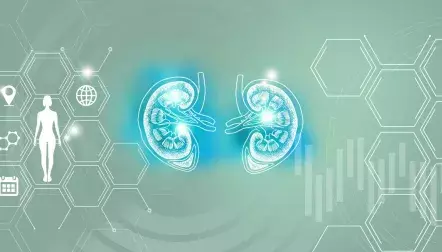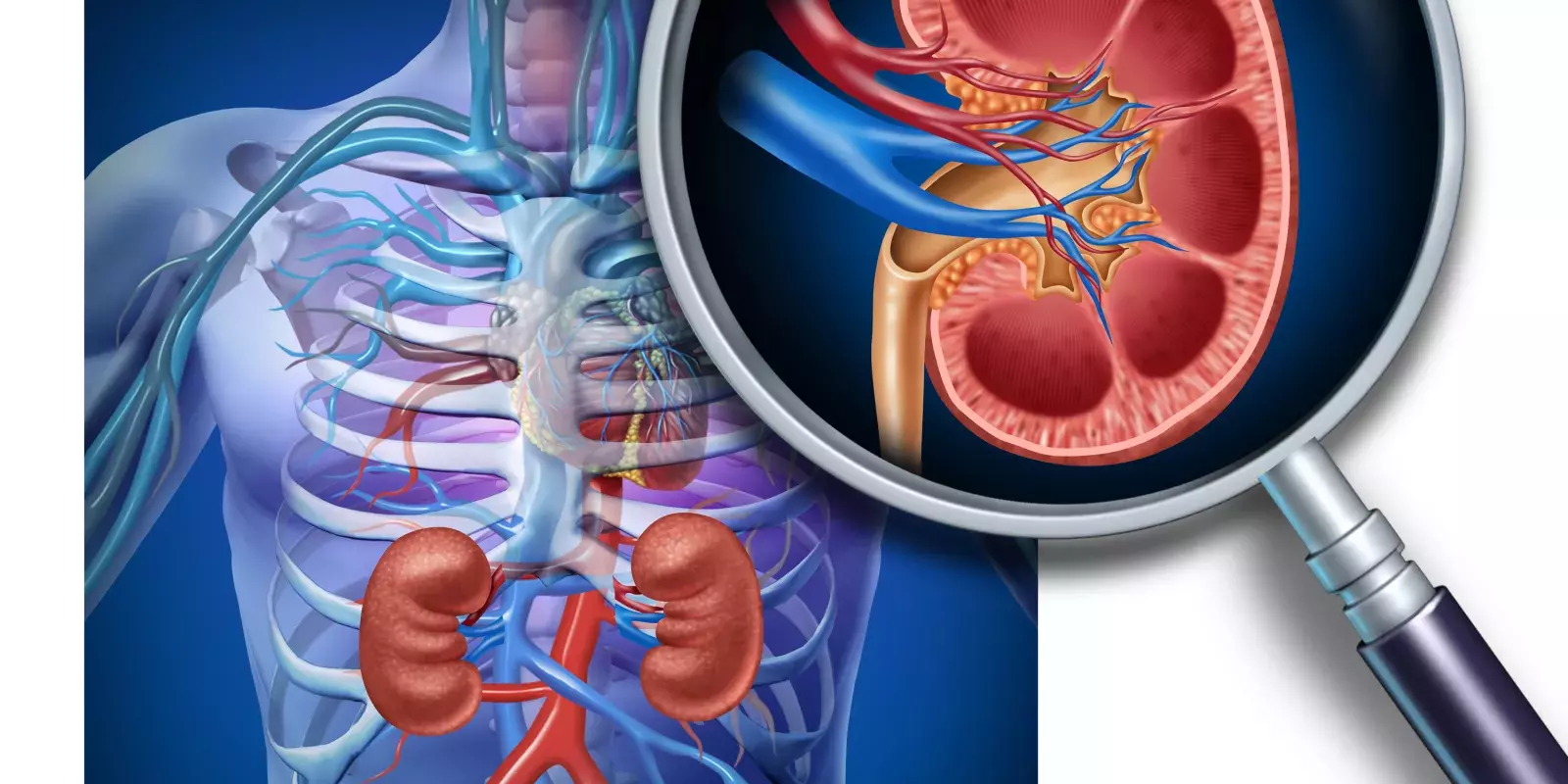
Stage 2 chronic kidney disease (CKD) causes, symptoms, and treatment

- Medically reviewed by
- Shahzia Lakhani
- Last updated
- January 29, 2025

What is stage 2 CKD?
In Stage 2 chronic kidney disease (CKD), your estimated glomerular filtration rate (eGFR) is between 60 and 89. This means your kidney function is mildly decreased. However, your kidneys are still able to filter your blood, which is why you may not notice any symptoms. While the damage to your kidneys may not be reversible, there is a lot you can do to slow down the damage to your kidneys. You may or may not also have the protein albumin in your urine (i.e., your pee), a common sign of kidney damage.
In Stage 2 CKD, making healthy choices to slow down the damage to your kidneys is important. If your kidney damage gets worse, you may move to the later stages of CKD.
What is uACR?
Your uACR (urine albumin-to-creatinine ratio) tests how much albumin is in your urine compared to creatinine, a waste product. This helps determine if your kidneys are filtering correctly. A higher uACR stage means more albumin is present in your urine, which indicates more significant kidney damage.

In Stage 2 CKD, making healthy choices to slow down the damage to your kidneys is important. If your kidney damage gets worse, you may move to the later stages of CKD.
What are the symptoms of stage 2 CKD?
Symptoms of kidney disease usually don't start until Stage 3 CKD, so many people with Stage 2 CKD don't know they have it. However, there are some signs of Stage 2 CKD people or doctors may notice when testing for kidney damage or other health conditions.
Signs and symptoms of Stage 2 CKD include:
- Protein in your urine (proteinuria)
- High blood pressure
- Swelling in your hands or feet
- Urinary tract infections
- Blood in your urine (also called hematuria)
- Kidney damage that shows up in an ultrasound, CT scan, MRI, or kidney biopsy

How can doctors tell my stage of CKD?
If you have a family history of kidney disease or a health condition that can damage your kidneys, such as diabetes or high blood pressure, your doctor may test your kidneys, even if you do not have symptoms.
To find out what stage of CKD you are in, doctors will do tests, such as:
- eGFR blood tests (a blood test)
- Urine tests
- Imaging tests to take detailed pictures of the inside of your body, such as ultrasound, CT scan or MRI
How can doctors tell what caused my CKD?
Your doctor may do several other tests to try and find out. They may include:
- Blood pressure checks
- Urine tests
- Imaging tests to take detailed pictures of the inside of your body, such as ultrasound, CT scan, or MRI
- Kidney biopsy (taking a small sample of kidney tissue to look at it under a microscope)
- Genetic testing (if doctors suspect a rare disease or one that runs in your family)
How do doctors treat stage 2 CKD?
Your doctor will work with you to slow down kidney damage and keep your kidneys working well for as long as possible.
Your doctor can help you:
- Control your blood sugar if you have diabetes.
- Keep your blood pressure in a healthy range (for most people with CKD, this is less than 120/80 millimeters of mercury, or mm Hg).
- Determine if you start or stop any medicines to help protect your kidneys.
Talk to your regular doctor about finding a nephrologist (kidney doctor). It's important to work with them to develop a personalized plan that tracks indicators of CKD. Individualized care can help prevent further damage and address any underlying conditions. Your nephrologist will work with you to create a treatment plan just for you. Regular check-ups are essential, even if you feel well, to detect changes early and prevent the damage to your kidneys from getting worse.
Know Your Cause®
Understanding the cause of your kidney disease is the first step toward effective management. Use this tool to learn the right questions to ask your doctor, discover if additional tests are needed, and gain insights into your kidney function. Be proactive, informed, and empowered to make the best decisions for your care.
How can I slow down the damage to my kidneys?
In Stage 2 CKD, making healthy choices to slow down the damage to your kidneys is important. If your kidney damage gets worse, you may move to the later stages of CKD. In Stages 3 and 4 CKD, your kidneys must work harder to get rid of waste. In Stage 5 CKD (kidney failure), your kidneys may stop working altogether. When your kidneys fail, you will need dialysis or a kidney transplant in order to live.
Here are some tips you can use:
- Eat a kidney-friendly diet. A dietitian is a nutrition expert who can look at results from your lab tests and help you plan healthy meals and snacks you'll want to eat: your "kidney diet."
- Be active for at least 30 minutes on most days of the week. This can be anything from walking or riding a bike to swimming or dancing.
- Keep a healthy weight. Talk with your doctor about what a healthy weight is for you.
- Quit smoking or using tobacco.

Manage CKD with a healthy lifestyle
Following a kidney-friendly meal plan is one of the best ways to slow kidney damage and feel your best. A dietitian (nutrition expert) can look at your lab results and help you plan healthy meals and snacks you'll want to eat.
Your donation fuels our fight
When you give to AKF, you do more than make a donation. You provide lifesaving assistance when patients have nowhere else to turn. You demonstrate that someone cares. And you join us in fighting kidney disease on all fronts: from prevention and research to treatment and transplant.

